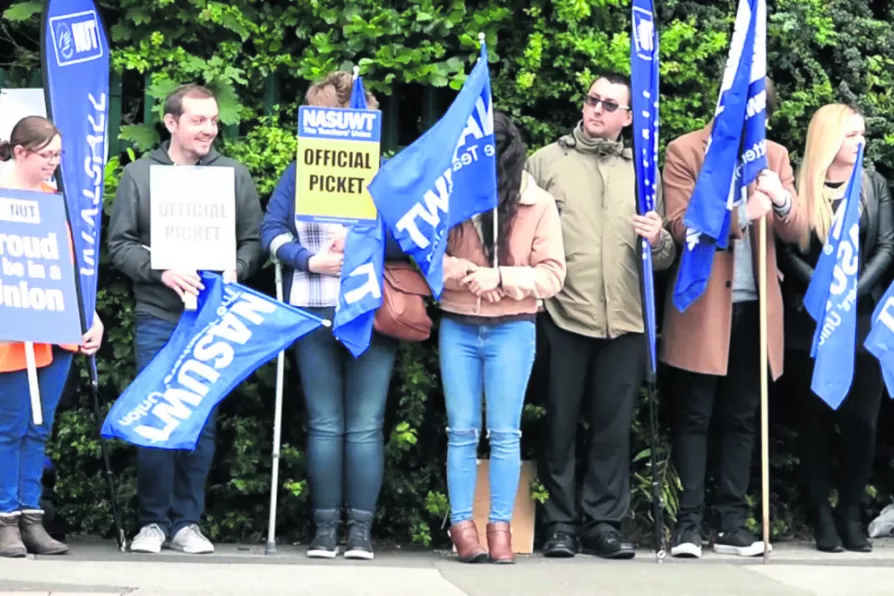The Carpathia isn’t coming to rescue this government still swimming in the mire, writes LINDA PENTZ GUNTER
E-Act – the academy trust that’s gaming the system
If you want schools to be committed to public education, they have to be publicly owned, says SOLOMON HUGHES

 FAILING: Teachers walk out of Willenhall E-Act Academy, the troubled Walsall school where Ofsted inspectors were pelted with food, over safety fears in 2017
FAILING: Teachers walk out of Willenhall E-Act Academy, the troubled Walsall school where Ofsted inspectors were pelted with food, over safety fears in 2017
ONE of the key arguments of “New Labour” was that ownership of public services didn’t matter.
Tony Blair spent a lot of political energy getting rid of the pro-nationalisation Clause IV of Labour’s constitution.
He argued that the state did not need to own public services. In fact, new market and quasi-market-driven providers would introduce “innovation.” The public interest could be maintained by contracts, targets, inspections and league tables.
Similar stories

NEU conference urges Labour to fix school funding crisis by getting rid of academy bosses earning over £500,000

As the government moves to rein in academy freedoms, former darling of conservative education reform Katharine Birbalsingh cries ‘Marxism.’ Education columnist ROBERT POOLE examines how academisation has failed our children while enriching executives and empowering ideologues at the expense of democratic accountability

SOLOMON HUGHES probes the finances of a phoney ‘charity’ pushing the free schools and academies agenda












